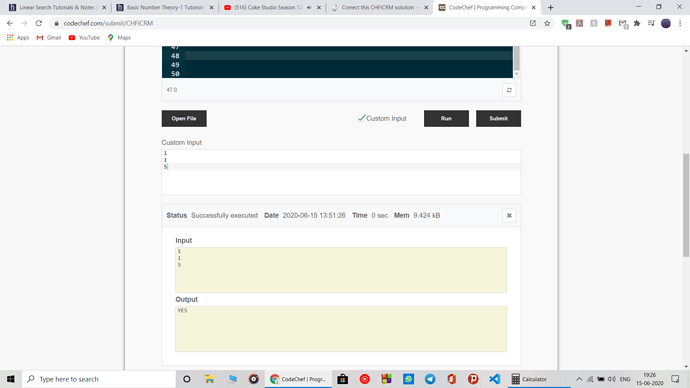#include<stdio.h>
#include<stdlib.h>
int func(int n,int *ar);
int main(){
int t;
scanf("%d",&t);
while(t–){
int n,x;
scanf("%d",&n);
int ar[n];
for(int i=0;i<n;i++)
scanf("%d",&ar[i]);
x = func(n,ar);
if(x==1) printf(“NO\n”);
else printf(“YES\n”);
}
return 0;
}
int func(int n ,int *ar){
int arr[2]={0,0};
if(ar[0]>5) return 1;
for(int i=0;i<n;i++){
if(ar[i]==5){arr[0]+=1;
}
if(ar[i]==10){arr[1]+=1;
arr[0]-=1;
} if (arr[0]<0) return 1;
if(ar[i]==15){
if(arr[1]*10>=arr[0]*5)arr[1]-=1;
else arr[0]-=2;
}if (arr[0]<0 ||arr[1]<0) return 1;}
}
